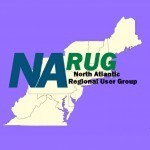
Details
NARUG Lunch & Learn Series
Real-Time Location Systems (RTLS) Trends, Applications, and Technologies in Healthcare
Presented by:
Teresa Brasac, PhD, MSN, MBA, APRN

Summary:
The healthcare industry has faced a multitude of challenges in recent years and is still amid economic troubles and continued staffing shortages. Coming out of the Pandemic, we are seeing an increase in RTLS demand to help address some of the challenges in healthcare today. Historically, technology that lessens workload and provides decision support has been one of the leading yearly reported healthcare trends. How can RTLS make healthcare systems more effective and still help provide patient focused care? During this presentation, we will review the latest trends in healthcare that are driving the utilization of RTLS applications, use cases and RTLS data insights.
Key Objectives:
- Review the factors in healthcare driving RTLS demand.
- Understand RTLS technologies that are being used in healthcare.
- Discuss RTLS applications that are in demand in healthcare today.
- Review RTLS data and insights.
BIOS:
Teresa Brasac, PhD, MSN, MBA, APRN, Chief Clinical and Informatics Officer, Sonitor Technologies, Inc.
Teresa Brasac is responsible for leading Sonitor’s strategy for clinical evidence-based design, data analytics, clinical applications and implementation of enterprise level clinical solutions that leverage real-time location systems. She works closely with Sonitor’s implementation teams and R&D leadership to expand the data sets we capture to enhance the care delivered at the bedside. She has led successful technology implementation programs in large hospital systems and IDNs incorporating various connected medical device projects and house wide RTLS deployments.
Teresa received her PhD degree in Nursing from Barry University. The focus of her dissertation and professional passion is learning and implementing medical device technology at the bedside. She received her undergraduate degree, Master’s degree in Business Administration, and Master’s degree in Nursing from Florida International University where she also received her Advance Practice Registered Nurse (APRN) degree. Her nursing background is in Oncology and Hospice. She developed the evidence-based IT implementation design model that she uses to lead smart room technology implementations. In the past 10 years, Teresa has worked with the larger U.S. health systems designing and implementing technology that leverages maximum utilization, integration and measurable outcomes using an evidence-based IT implementation methodology design.
Notice:
You need to register for this event to receive webinar information. Webinar info can be found on your registration confirmation and by choosing going to "Manage My Registration" on the main Webinar page and going to "Confirmation and Webinar Details."
Disclosure:
This Webinar is free of charge. The NARUG group receives nominal compensation from the Webinar sponsor that helps to offset operating costs. There are no Continuing Education Credits being offered. By registering you agree to share your information with the vendor presenting.
Tags
When
Friday, August 4th, 2023 from 12:00 to 1:00 (US/Eastern)Additional Links
Organizer




Attachments
About North Atlantic RUG (NARUG)
Greetings NARUG Community,
We are ready for Spring of 2023 with an in person conference! Save the dates for 4/17-19/2023, in New Jersey. We look forward to seeing people in person.
Regional User Groups (RUGs) are client-driven communities by geography that provide knowledge sharing around implementation and use of Cerner applications, as well as networking opportunities. The RUG community provides a venue to share and learn about enterprise-wide topics such as architecture, technology, and new Cerner initiatives. For more information, please visit Regional User Groups (RUGs) on uCern.
The NARUG is comprised of Cerner clients from the following states: Connecticut, Delaware, Massachusetts, Maryland, Maine, New Hampshire, New Jersey, New York, Pennsylvania, Rhode Island, Vermont, Virginia, Washington DC, and West Virginia.
 ← Exit
← Exit
